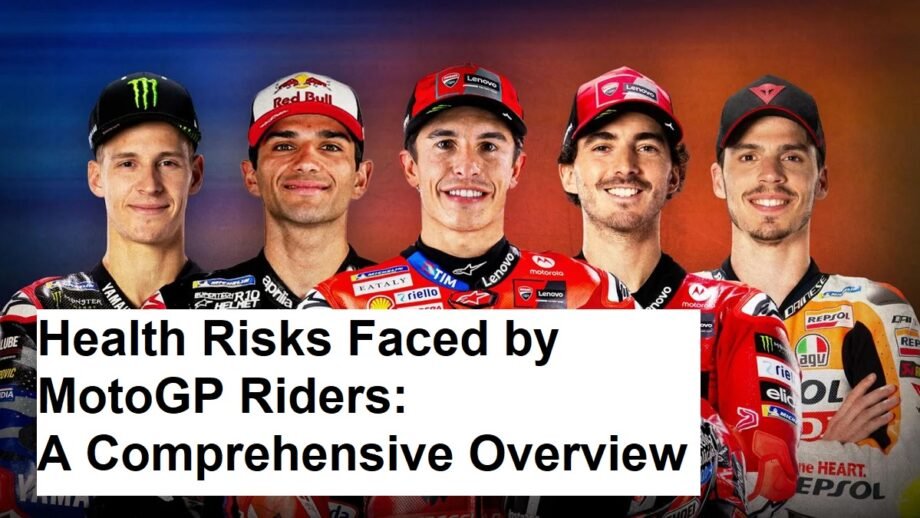Introduction
MotoGP racing is one of the most thrilling and high-speed sports in the world, showcasing elite riders pushing the limits of human skill and machine performance. However, behind the adrenaline and excitement lies a harsh reality: MotoGP riders face significant health risks due to the extreme physical and mental demands of the sport.
Physical Injuries: The Most Immediate Risk
Traumatic Injuries
MotoGP riders are exposed to high-speed crashes that can result in severe traumatic injuries, including:
- Fractures and Broken Bones:Commonly in the collarbone, wrists, and legs due to high-impact falls.
- Concussions and Head Injuries:Despite wearing helmets, riders can suffer from concussions or traumatic brain injuries during crashes.
- Road Rash and Lacerations:Sliding on asphalt at high speeds causes severe skin abrasions and cuts.
Long-Term Musculoskeletal Issues
Repeated crashes and the physical strain of racing can lead to chronic problems such as:
- Joint Pain and Arthritis:Especially in the knees, shoulders, and spine.
- Back Problems:Due to the aggressive riding posture and vibrations during races.
- Muscle Strain and Fatigue:Constant high-intensity riding causes muscle wear and tear.
Mental Health Challenges
Stress and Anxiety
The pressure to perform at the highest level, combined with the constant risk of injury, can lead to:
- Performance Anxiety:Fear of failure or injury affecting concentration.
- Chronic Stress:From intense competition and media scrutiny.
Post-Traumatic Stress Disorder (PTSD)
Riders who experience severe crashes may develop PTSD, characterized by:
- Flashbacks of accidents
- Heightened anxiety
- Difficulty concentrating or sleeping
Respiratory and Cardiovascular Strain
High Physical Demands
MotoGP racing requires exceptional cardiovascular fitness, but the extreme exertion can strain the heart and lungs:
- Increased Heart Rate:Sustained high heart rates during races can stress the cardiovascular system.
- Breathing Difficulties:Wearing tight racing suits and helmets can restrict airflow, making breathing more laborious.
Heat Stress and Dehydration
Riders often race in hot conditions, leading to:
- Dehydration:Loss of fluids through sweat can impair performance and health.
- Heat Exhaustion:Prolonged exposure to heat can cause dizziness, fatigue, and in severe cases, heat stroke.
Vision and Sensory Risks
Visual Strain
High speeds and rapid changes in light conditions can cause:
- Eye Fatigue:Constant focus and quick reactions strain the eyes.
- Reduced Peripheral Vision:Helmets and visors can limit side vision, increasing risk during close racing.
Hearing Damage
The loud noise from engines and crowds can lead to:
- Hearing Loss:Prolonged exposure to high decibel levels without adequate protection.
Long-Term Health Concerns
Neurodegenerative Diseases
There is growing concern about the long-term effects of repeated head trauma, including:
- Chronic Traumatic Encephalopathy (CTE):A progressive brain condition linked to repeated concussions.
- Cognitive Decline:Memory loss, mood disorders, and other neurological symptoms.
Impact on Life Expectancy
While many riders maintain excellent fitness, the cumulative effects of injuries and stress may impact overall health and longevity.
Conclusion
MotoGP riders face a unique and demanding set of health risks that go beyond the thrill of racing. From immediate physical injuries to long-term neurological and psychological challenges, the sport requires not only exceptional skill but also resilience and comprehensive medical support. Understanding these risks highlights the bravery and dedication of MotoGP athletes and underscores the importance of safety measures and health monitoring in this high-octane sport.








